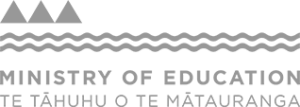CEO Update
Kia ora,
April to June 2023 was Netsafe’s busiest ever quarter for complaints assessed as falling within the scope of the Harmful Digital Communications Act.
Rising Sextortion Cases: Netsafe and the Police have observed a significant increase in reported cases of sextortion, a form of online blackmail where perpetrators threaten to share intimate images or videos unless certain demands are met. Many cases still go unreported due to victims’ embarrassment, shame, fear of judgment, or fear of consequences. Netsafe’s partnership with Protect Children aims to educate young people about sextortion and empower them to support friends in crisis.
Sharenting and Children’s Privacy: Netsafe has noticed a growing trend of “sharenting,” where parents increasingly share personal information about their children on social media. It’s common for people to believe that sharing children’s moments online allows them to connect with family and friends. They think they are creating a digital version of a photo album but in reality, they are creating a digital footprint for their child that anybody could have access to.
If you’d like advice on how to celebrate your family safely, check out our tips at – netsafe.org.nz/sharenting/
Misinformation in New Zealand: Research commissioned by Netsafe reveals that sharing false information intended to deceive and mislead is a major online danger in New Zealand. Approximately half of the population (48%) encounters misinformation daily, with climate change, vaccine claims, racial intolerance, and COVID-19 being common subjects. Vulnerable groups, including the LGBTQIA+ community, Pasifika, neurodiverse individuals, seniors, and teens, are particularly targeted.
Impact and Distribution of Misinformation: Misinformation is predominantly found on social media platforms (77%) and spread through conversations with others or overseas news sites (68%). The report shared with the MoJ emphasizes the need for improved media literacy, as only 28% of New Zealanders feel confident in identifying misinformation. The research also highlights that misinformation damages public trust in the government and can negatively impact responses to important issues like COVID-19 and elections.
General Election: With the general election just weeks away, we’ve been talking to politicians about Netsafe’s recommendations to address online harm. Specifically, we urge the Government to:
- Support NGO-led anti-scam initiatives
Increasingly sophisticated scams are having a profound impact on citizens. They require immediate assistance and ongoing support.
In most like-minded jurisdictions around the world scammed citizens have access to NGO-provided anti-scam support funded by government and industry. The volume and sophistication of scams are escalating, so much so that it is becoming increasingly difficult for citizens to distinguish between scams and legitimate communications. Scammed citizens need immediate assistance followed by support to rebuild their online lives. Netsafe provides this service, but it is unfunded. While government agencies and industry recognise the scam problem there has been limited progress in advancing a one-stop solution.
Netsafe recommends: Government works with Netsafe and NGO partner IDCare to develop and fund anti-scam initiatives.
- Increase online safety protections for young people
Young people are particularly vulnerable to cyberbullying and online abuse which can have rapid and devastating impacts on them. More services are required to educate and support young people and their digital lives. There are inadequate protections for them.
Netsafe recommends:
-
-
- Government update and improve online safety and media literacy curriculum in schools. Re-examine the decision to remove media literacy from Curriculum Level 1. This is necessary because the age of criminality under the Harmful Digital Communications Act applies from the age of 10 years
- Boost funding (from Health budgets) to enable the establishment of dedicated health triage and telephone services to provide support for anyone experiencing technology-facilitated abuse and online harm
- Improve access and support for victims of cyberbullying and their families. This could include mental health support such as counselling
- Invest in anti-cyberbullying programmes in schools and improve reporting pathways to Netsafe
- Fund research to address content that sexualises children or depicts self-harm and suicide violence against children.
-
- Upgrade the Harmful Digital Communications Act to respond to new harms
This 2015 law does not explicitly prohibit tech-facilitated abuse using Artificial Intelligence (AI).
Advances in AI technology allow the creation of deep fake or synthetic intimate images depicting real people in situations and scenarios that are not real. These can then be shared online and used for threats or blackmail. New Zealand law does not explicitly prohibit tech-facilitated abuse using AI. There is an urgent need to review and update the Harmful Digital Communications Act to protect citizens from AI-generated abuse while at the same time modernising interventions to provide for restorative justice. Citizens must be educated about the law changes while the implementation of new measures requires in-depth research.
Netsafe recommends law reform to better protect New Zealanders:
-
-
- Prescribing harm types or harm principles by Regulations under the Act
- Making clear that posting intimate visual recordings without consent clearly covers synthetic or deep fake images where a victim could be identified
- Amending forms and processes used by the Approved Agency and the District Court to be more victim-centric
- Whether there is a need for restorative justice solutions to be piloted or tried as alternative dispute resolution solutions
- Addressing an absence of mechanisms under the Act when content resurfaces after settlement has been reached
- How the Act should deal with third-party harm where the individual making a complaint is not the subject of the harmful digital communication.
- Back up law change with education and research
-
-
Ngā mihi,
Brent Carey
CEO, Netsafe
Report Contents
Previous quarterly reports
Quarterly Results
Between April – June 2023, Netsafe received 7,393 reports overall.
Top taxonomy descriptions included:
Phishing • Sextortion • Non-existant products scams • Harassment • Intrusion • Non-existant services scams • Sensitive information released • Credit / Debit Cards • Prize promotion / sweepstakes scam • False allegation
TOTAL REPORTS
PERSONAL HARM COMPLAINTS
SCAM & FRAUD REPORTS
Reports by age group
1%
00-12
11%
13-17
7%
18-21
35%
22-40
34%
41-64
11%
65+
Reports by region
Reports by gender
57%
FEMALE
1%
GENDER DIVERSE
42%
MALE
Personal Harm Reporting
Reported breaches under the Harmful Digital Communications Act*
Between April and June 2023, Netsafe received 1,641 personal harm reports. The top personal harm categories under the Harmful Digital Communication Act for the quarter were:
* Cases often involve breaches of more than one communication principle
Harmful Digital Communications Act Reports Spotlight
To mark Best Friends’ day on 8th June 2023, in partnership with Protect Children Europe, Netsafe launched #myfriendtoo, a campaign to raise awareness among young people of the rise of sextortion and imaged based abuse.
This campaign comes at a time when reports to Netsafe of sextortion are rising sharply (sextortion is a form of online blackmail whereby a person threatens to share another’s intimate images or videos unless they comply with certain demands).
Netsafe, and Police, are seeing this worrying rise in reports while also being aware that many cases still go unreported. This can be due to victim embarrassment, shame, fear of being judged, or fear of ‘getting into trouble’.
Recent studies show that the friends of children and young people are often the first to learn about experiences of harassment, grooming and sexual violence. In her latest research, Lahtinen (2022) emphasises that children and young people do disclose sexual violence, but mainly to their friends. As a result, the crimes remain hidden from adults and the authorities, and the perpetrators go unprosecuted. At the same time, the friends carry a distressing secret and the child victim remains without the support and care they need.
Blackmailing someone for money is a crime. And so is sharing someone’s intimate images without their consent. We’re hoping that young people encourage their friends to reach out to Netsafe. We won’t judge. And we’re here to help.
Scam and Fraud Snapshot
There isn’t a day that doesn’t feature a news headline appearing around someone getting scammed out of their hard-earned savings. Last year Netsafe recorded $35 million of kiwi’s money lost from scams.
We recently participated in a four-part documentary series “You’ve been scammed” with renowned clinical psychologist, Nigel Latta. The series is available to stream on-demand on TVNZ+.
The program aims to expose the unsettling ease with which scammers exploit unsuspecting individuals, while also providing invaluable insights on how we can arm ourselves against their deceptive tactics.
Nigel Latta uses genuine scam cases and crafted experiments to unveil the psychological techniques employed by scammers to prey upon human vulnerabilities. By analysing the interplay between human behaviour and manipulation, he explains emotions like compliancy can be skilfully exploited, resulting in severe financial and emotional consequences.
In each episode, the show dives into two of the most prevalent types of scams that Face New Zealanders: impersonation, phishing, investments, fraud, extortion, remote access breaches, and romance scams.
Also check out our Scam resources:
- Scam Detection and Prevention Guide: Netsafe’s comprehensive guide equips you with the knowledge and tools to identify and prevent scams effectively. It covers various types of scams, warning signs, and preventive measures. You can access the guide at: netsafe.org.nz/scam-detection-prevention-guide/
- Online Safety Advice: Netsafe’s website features an extensive collection of articles and advice on online safety. This includes specific information on scams, how to recognise them, and steps to take if you encounter one. Explore their online safety advice section at: netsafe.org.nz/advice/
Report a Scam: Netsafe encourages individuals to report scams they have encountered. By reporting scams, you contribute to the collective effort of combating online fraud. To report a scam or seek further assistance, visit: netsafe.org.nz/report/
[/spb_text_block]Reported incidents from chatbot (Kora)
Education, Partnership & Impact
Schools education activity:
Our education and outreach team delivered 67 harm prevention sessions across 42 locations to 1,496 attendees this quarter. Our post-event satisfaction survey captured that 93% of this quarter’s respondents rated the presentation experience 8/10 or above. Netsafe also collaborated with community partners to deliver bespoke education to youth sector professionals and families this quarter. This include Mana Ake, Deaf Aotearoa and the Timaru Youth Sector and Mental Health teams.
Online harm prevention resources:
In terms of online harm prevention education, Netsafe’s website visitors continued to grow, thanks to a focussed investment in search engine optimisation improvements, with 112,440 page sessions across the website this quarter.
64,758 of those were visits finding us via organic searching. A further 21,108 visits were direct traffic, showing our brand is synonymous for people with the support they seek. And this was almost double the visits stemming from paid search ads (11,369) showing that we are increasingly reaching the people who need us in cost-efficient ways.
Netsafe continued to promote our new online learning platform to schools (https://netsafe.talentlms.com/) with six pilot modules. 1,928 users had been through the system as of 29 June with 1,208 completed MLMs and a further 1,454 were still in progress.
Netsafe’s Youth Action Squad also launched their new YAS Toolkit website (https://netsafeyas.nz/) to schools at the end of June, achieving media coverage in Stuff and on radio.
Public harm prevention and awareness campaign activity:
In May, Netsafe contributed to the Privacy Commissioners’ Privacy Week – Leanne Ross and Netsafe’s Chief Legal Advisor, Michael des Tombe, delivered a public webinar on young people and privacy as part of the week.
In May, Netsafe also supported Xbox’s launch of their Family Gaming Toolkit, which we advised on the development of, alongside the Classifications Office and IGEA.
Netsafe worked with the Mental Health Foundation to update their cyber bullying prevention resources that were promoted to families for Pink Shirt Day (https://pinkshirtday.org.nz/prevention/cyberbullying-explained).
For Samoan Language Week, Netsafe invested in a new translated resource – to explain the Harmful Digital Communications Act in New Zealand. It describes the online communications which are unlawful here.
Submissions and Advocacy
Netsafe responds to public consultations or may otherwise advocate on issues relevant to our work. This quarter’s submissions can be found via the following links:
About Netsafe
Netsafe is an independent non-profit organisation with an unrelenting focus on online safety. We keep people safe online by providing free support, advice and education. Visit netsafe.org.nz for useful resources or call 0508 638 723 seven days a week for help with an online incident.
Find out more at www.netsafe.org.nz
Become a Netsafe member
Netsafe is incorporated as a society and a charity. Our members represent a variety of backgrounds and countries, but all have one thing in common – an interest in keeping people safe online. Membership is free and easy to apply for.
Find out more about being a Netsafe member, or apply to join today by completing our online form.
Report Data
The data in this report represents the data available at the end of the quarter. Information related to the reports made to Netsafe reflect high-level trends and does not include easily identifiable information about specific reports/incidents.
If you have any queries about the information in this report, please email [email protected]





